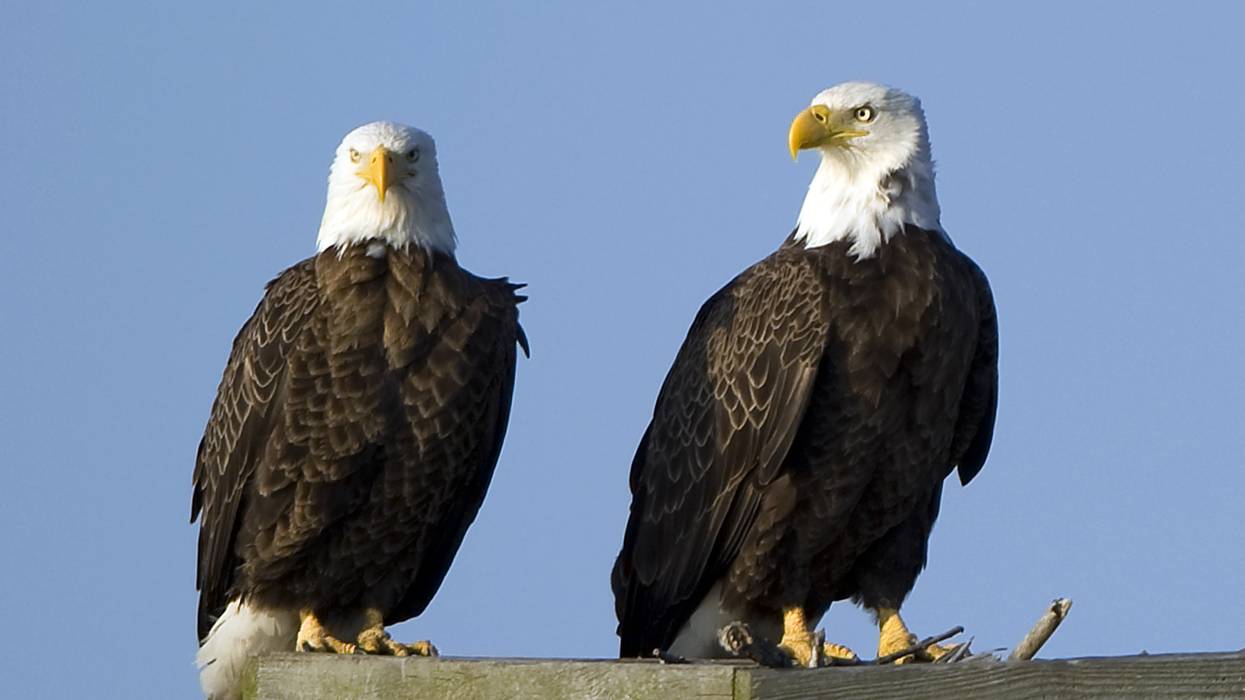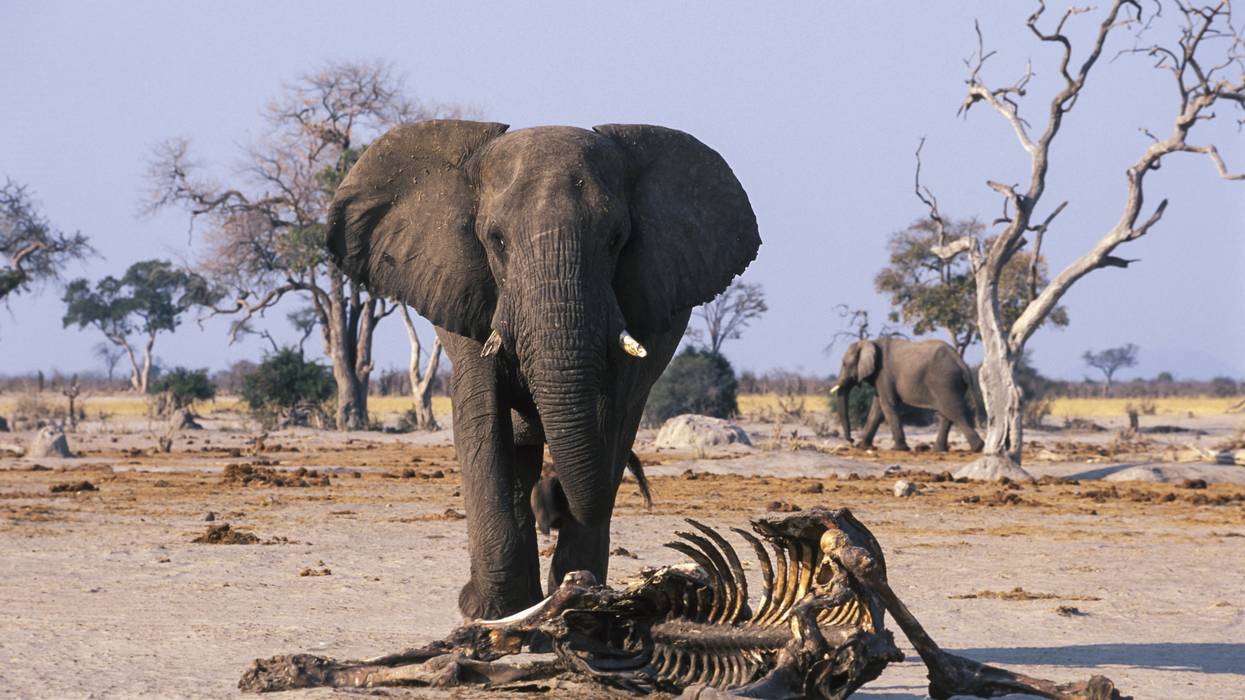Outrage as Trump Blows Up Endangered Species Act Protection by Redefining One Word
One conservation campaigner accused the president of "trying to drive a knife through the heart of the Endangered Species Act."
The Trump administration on Wednesday published an anticipated proposal that one green group warned "would rescind nearly all habitat protections for endangered species nationwide" by changing the regulatory definition of a single word in the country's cornerstone wildlife conservation law.
Two federal agencies published a proposed overhaul of the Endangered Species Act (ESA) that would rescind the definition of "harm" to plants and animals protected under the landmark 1973 legislation, which according to the U.S. Department of the Interior has saved 99% of listed species from extinction.
Under the proposal from the U.S. Fish and Wildlife Service and the National Oceanic and Atmospheric Administration (NOAA), habitat destruction—the leading driver of extinction—would not be considered "harm." Opponents say the Trump administration is planning the redefinition in order to enable more destructive resource extraction like logging, mining, and fossil fuel expansion that would imperil ESA-protected species.
The Center for Biological Diversity (CBD) warned that the proposal would open the door "for industries of all kinds to destroy the natural world and drive species to extinction in the process."
UPDATE: The Trump administration issued a proposed rule today that would rescind nearly all habitat protections for endangered species nationwide. You can't protect animals and plants from extinction without protecting the places they live. More info: biodiv.us/42EnuQH
[image or embed]
— Center for Biological Diversity (@biologicaldiversity.org) April 16, 2025 at 8:26 AM
Noah Greenwald, CBD's co-director of endangered species, said Wednesday that U.S. President Donald Trump "is trying to drive a knife through the heart of the Endangered Species Act."
"We refuse to let him wipe out America's imperiled wildlife, and I believe the courts won't allow this radical assault on conservation," he continued. "There's just no way to protect animals and plants from extinction without protecting the places they live, yet the Trump administration is opening the flood gates to immeasurable habitat destruction."
"This administration's greed and contempt for imperiled wildlife know no bounds, but most Americans know that we destroy the natural world at our own peril," Greenwald added. "Nobody voted to drive spotted owls, Florida panthers, or grizzly bears to extinction."
CBD says the definition of harm has been "pivotal to protecting and recovering endangered species," noting that the U.S. Supreme Court has affirmed that it includes habitat destruction.
Andrew Bowman, president and CEO of Defenders of Wildlife, said Wednesday, "Despite the fact that the Endangered Species Act is America's single greatest tool to prevent species extinction, has a 99% success rate, and is supported across party lines and the country by 95% of the electorate, the Trump administration is hell-bent on destroying it to further line the pockets of industry."
"The vast majority of imperiled wildlife listed as endangered or threatened under the ESA are there because of loss of habitat," Bowman added. "This latest salvo to redefine 'harm' to eliminate protection for wildlife from habitat destruction, if successful, will further imperil threatened and endangered species. We will fight this action and continue to protect the wildlife and wild places we hold dear as a nation."
Drew Caputo, vice president of litigation for lands, wildlife, and oceans at Earthjustice, on Wednesday accused the Trump administration of "trying to rewrite basic biology."
"Like all of us, endangered species need a safe place to live," Caputo said. "This misguided new proposal threatens a half-century of progress in protecting and restoring endangered species. We are prepared to go to court to ensure that America doesn't abandon its endangered wildlife."
Trump has already attacked the ESA during his current term by issuing an executive order declaring a "national energy emergency" meant to promote his "drill, baby, drill" fossil fuel policy. The order states that the ESA and Marine Mammal Protection Act will not be allowed stand in the way of fossil fuel development.
The proposed redefinition of "harm" in the ESA comes as the Trump administration, spearheaded by Elon Musk's Department of Government Efficiency, eviscerates federal agencies including the Fish and Wildlife Service and NOAA. As he did during his first term, Trump is pursuing a massive rollback of climate and environmental regulations and has appointed Cabinet secretaries whose backgrounds and beliefs are often inimical to their agencies' purposes.
These include Interior Secretary Doug Burgum, a staunch fossil fuel proponent; Energy Secretary Chris Wright, a former CEO of a fracking company who has denied the existence of a climate emergency; and Environmental Protect Agency Administrator Lee Zeldin, described by the Sunrise Movement as "a disaster for our planet and a win for Big Oil."
In response to the administration's proposal, Sierra Club executive director Ben Jealous said that "in Donald Trump's world, future generations will know bald eagles, blue whales, grizzly bears, and other imperiled species only through photographs."
"A world with the ESA is a world where those species have a chance to thrive," he added. "We will do everything in our power to defend this law and save our wildlife for future generations."


